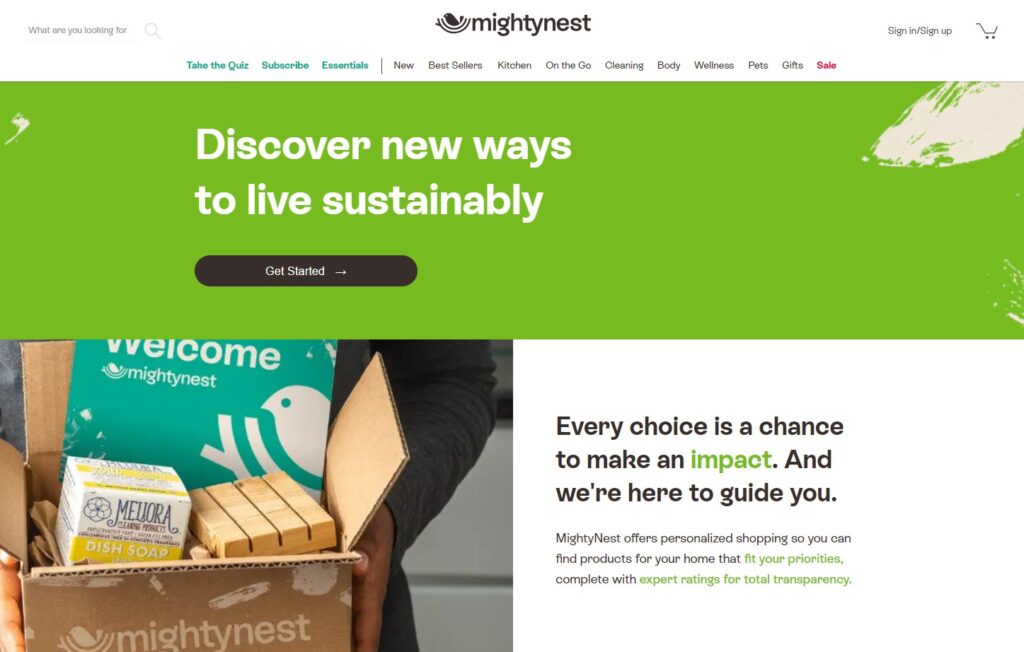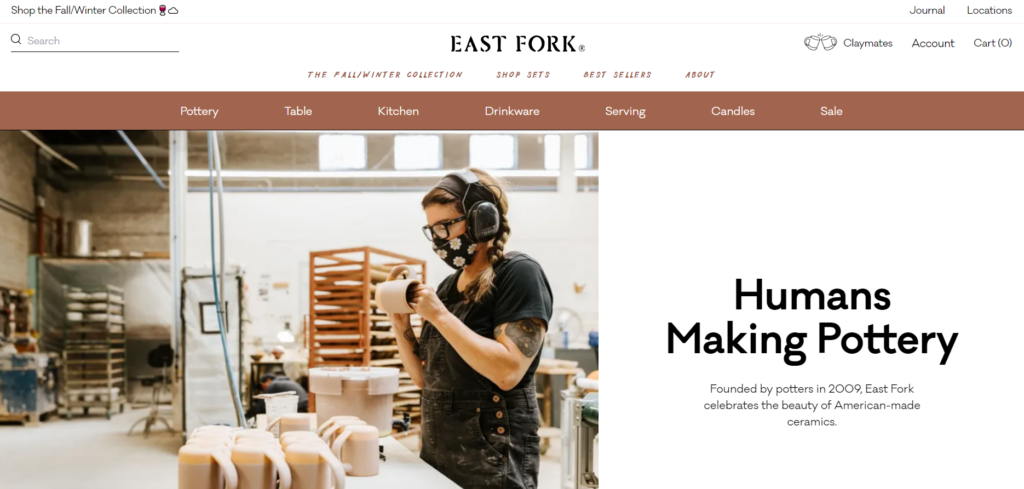Corporate social responsibility (CSR) is the practice of companies voluntarily committing to uphold ethical or environmental standards. A person might choose to rely on solar power or only purchase products packaged in recyclable materials. A company or corporation can do the same thing on a larger scale, increasing the impact of their socially responsible choices. Embracing CSR can help small businesses attract customers (or even investors).
Let’s look at what corporate social responsibility is and how embracing it can support your small business.
Key Takeaways:
- Corporate social responsibility is a form of business ethics that is increasingly important to US consumers and investors, so it is also important to businesses.
- There are four main corporate social responsibility types: economic, ethical, environmental, and philanthropic.
- Businesses can demonstrate corporate social responsibility in everything from who they hire, where they source products, how they use energy, and how they spend their profits.
Types of Corporate Responsibility
Corporate social responsibility strategies fall into four major categories: environmental, ethical, economic, and philanthropic responsibility. Businesses may choose to focus on only one type of corporate social responsibility or incorporate several CSR strategies into their operation.
Let’s look at each of the corporate social responsibility types in detail:
Environmental Corporate Social Responsibility
Environmental responsibility is the most common type of CSR. Environmental responsibility means making business choices that reduce your business’s environmental impact.
Environmental responsibility is one of the most common forms of corporate social responsibility. When you consider that 85% of US consumers report first-hand experience with climate change in their daily lives, adopting this one form of CSR could dramatically expand your customer base.
Businesses can demonstrate their commitment to environmental social responsibility in several ways:
- Embracing sustainability: Sustainable choices can mean shortening your supply chains to reduce your carbon footprint, choosing recyclable or compostable product packaging, or even simply composting and recycling your business waste. If shifting to solar or wind energy is an option, that’s also a great choice.
- Reducing resource consumption: Reducing water and energy consumption is a great option, especially when you cannot change your energy sources (maybe you lease your location or require generators to operate). Most brick-and-mortar businesses can choose energy-efficient light sources and Energy-Star-rated appliances. Other business types might capture rainwater or reduce water consumption.
- Offsetting less sustainable choices: If there are some choices you cannot make more sustainable—like a restaurant that needs gas to cook or an ecommerce business that ships products—you can offset those carbon emissions by planting trees or giving a percentage of profits to organizations that work for environmental causes.
Ethical Corporate Social Responsibility
Ethical social responsibility means treating your staff, customers, and suppliers ethically. This could take many forms, from fair hiring practices and pay equity to truth in advertising or choosing to only work with suppliers who treat employees fairly.
Here are some different angles ethical social responsibility can take:
- Truthful marketing: Ethical marketing is honest about product claims, clearly states the full price in a customer-friendly way, and transparently lists product origin and ingredients. Ethical marketing also respects customer privacy, clearly stating how customer data will be used and offering opt-outs where possible.
- Ethical sourcing: Ethical sourcing includes working with suppliers that treat their employees ethically and sourcing products and supplies from vendors who commit to certain environmental standards. Groups like Fairtrade International are a great source for finding ethical product sources.
- Ethical labor practices: This could be providing fair and equitable wages to your staff, publicizing salaries on job postings, or enforcing non-discrimination and anti-harassment policies. You could also commit to giving employees a certain level of advance notice of schedule changes and provide paid sick leave or parental leave.
Economic Corporate Social Responsibility
Economic corporate social responsibility asks businesses to make financial decisions that contribute positively to society (and the business’s bottom line). Like other forms of CSR, transparency is a key component of economic responsibility.
Economic CSR is all about how you do business, such as:
- Paying taxes: Paying your taxes in full and on time is an easy way to display economic corporate social responsibility.
- Paying fair prices: Paying fair prices for your supplies and products ensures that everyone in your supply chain earns their fair share.
- Sustainable growth: Stewarding your business resources to encourage long-term growth over short-term gains is a key component of economic social responsibility. Growth is a part of any successful business, but growing too fast in the short term can negatively impact the environment and community around you by burning through financial and environmental resources.
- Supporting your local economy: Sourcing products and services from nearby businesses in your community is a great way to use your business resources to support your local economy. Hire local workers and keep your profits in your community.
Philanthropic Corporate Social Responsibility
Philanthropy is a form of CSR where a business uses its profits to support charitable causes. Corporate philanthropy can take many forms.
- Charitable donations: Giving a portion of your profits to a nonprofit or a charity is a classic form of corporate philanthropy. Rounding-up campaigns, where businesses ask customers to round their purchases up to the nearest dollar and donate the difference to a local charity, are a great example.
- Gifting stock: Larger companies can gift company stock to charitable organizations as a way to continuously support a meaningful cause for the long term. Gifts of stock may not be something a small business can do right away, but it can be an excellent long-term goal.
- Gifting products or services: You can give products to fundraisers or directly to support a charity. A common way for small businesses to support local charities is to donate products or gift certificates for fundraisers. An accounting firm might donate tax assistance to a nonprofit.
- Volunteer hours: You don’t have to share profits; you can also donate your time to charitable organizations. Giving your employees a paid day off to contribute a full day to a charity of their choice is an easy way for small businesses to make an impact here.
Corporate Social Responsibility Examples
The internet is full of examples of large corporations demonstrating corporate social responsibility, from Ben & Jerry’s ice cream integrating brand activism to support causes like refugee rights and campaign finance reform to Patagonia’s decision to turn over a majority of its stock holdings (98%) to a climate activist nonprofit organization. But you don’t need millions of dollars and hundreds of staff to commit to corporate social responsibility.
These small businesses use corporate social responsibility to make a big difference in their communities in a number of different ways.
MightyNest

MightyNest is an ecommerce company specializing in household goods. This company sources sustainable products from ethical vendors and created its own rating system to rate the safety and sustainability of ingredients in each of the products it sells. As an ecommerce company, however, the business model challenges MightyNest’s environmentally friendly ethos.
MightyNest takes the following steps to resolve this:
- Sustainable packaging: MightyNest ships all its products plastic-free, using recyclable mailers made from at least 75% post-consumer paper. It also reuses suppliers’ packaging when possible.
- Transparency: Honesty is a major commitment for MightyNest. It sources products and tests them personally, only stocking and selling products that meet their standards for sustainability and safe ingredients. MightyNest transparently lists ingredients, packaging materials, and internal ratings of each product so customers can make purchases that are in line with their personal ethics.
Honey Field Farm

Honey Field Farm is a small organic farm. They grow organic produce and flowers and host community gatherings and events in their greenhouses. In addition to that work, Honey Field also showcases its corporate social responsibility in several ways:
- Short supply chains: Honey Field is a community-supported agriculture (CSA) operation. Before the growing season starts, customers become “members” by purchasing “shares” of the upcoming season’s crops. Members receive a portion of the crops every week throughout the growing season. This reduces the farm’s carbon footprint by reducing the distance their produce needs to travel.
- Transparent supply chains: Honey Field is certified organic and clearly communicates the source of every item it sells in its farmstand, whether from its farm or other partners.
- Community philanthropy: Honey Field partners with local nonprofit Willing Hands to provide produce to economically disadvantaged people in their community. It also provides complimentary plants and flowers to area nonprofits.
East Fork

East Fork is a North Carolina-based ceramic manufacturing company. This small business prides itself on supporting its local economy while treating everyone from its teammates to suppliers with “kindness and respect.”
East Fork also expresses CSR through:
- Philanthropy: East Fork partners with community nonprofits that support racial and gender equity.
- Living wages: East Fork pays its workers $22 per hour and publishes this rate clearly on its website. The business plans to raise this base wage in the future to meet the family living wage for their county, based on MIT calculations.
- Transparency: In addition to clearly communicating its mission and wages on the website, East Fork is a registered B Corp, which holds the company accountable for using its profits to benefit its community.
Inherent Homes

Inherent Homes is a Chicago-based low-profit l3C home-building company. The l3C business model is a combination of a non-profit and for-profit business that obligates the business to prioritize social impact over profit. This business is committed to building affordable housing in the communities where families live and work.
- Sustainability: Inherent Homes properties are built with solar power and are designed to be energy-efficient. The construction process is also sustainable, with most of the construction happening in a warehouse, which streamlines the building process and allows Inherent to continue building through Chicago winters.
- Community partnerships: Inherent works with municipalities and community groups to connect families with grants, down payment assistance, and general home-buying education and resources.
- Affordable construction: Affordability for working families is a cornerstone of Inherent’s business model. Inherent designs its homes to cost no more than three times the household income of the surrounding community. It designs and builds its homes with a family of four, earning 80% of an area’s median income, in mind.
Benefits of Corporate Social Responsibility
Corporate social responsibility can help you as a business owner feel motivated to live your values. The ability to control the impact your business has on the environment and your community can also improve your general sense of well-being.
In addition to these personal benefits, adopting a corporate social responsibility strategy can benefit your business in other ways.
- Improved brand reputation: One-third of consumers are more likely to trust brands that align with their values.
- Higher profits: According to a 2024 study by PricewaterhouseCoopers, 80% of consumers are willing to pay more for sustainably sourced products. How much more? Up to 9.7% more, according to the same study.
- More attractive to investors: Investors like to see CSR initiatives from small businesses. A CSR plan shows potential investors that you have thoughtfully designed your business model and planned ahead for many business variables. Many investors also support CSR initiatives personally, and they can feel that their money is going toward good causes when they invest in your business.
- Improved employee engagement:Research by the University of Leeds found that CSR initiatives improve employee motivation and sense of well-being. Employees who believe in their work are more likely to stick with a job. The study also linked CSR initiatives to increased job satisfaction and commitment, suggesting that businesses that adopt CSR strategies may retain employees longer than those that don’t.
- Appeal to younger clientele: According to the Harvard Business Review, Generation Z and millennial customers are 27% more likely to make a purchase when they believe a brand cares about its impact on people and the planet. A full 80% of Gen Z and millennial shoppers base their purchase decisions on a brand’s mission or stated ethics.
Trends Shaping Corporate Social Responsibility
Corporate social responsibility strategies evolve and shift as the world changes. Twenty years ago, reducing paper waste and installing high-efficiency equipment were cutting-edge CSR moves. As with most things in the small business world, technological shifts are changing how we think about corporate social responsibility.
Some current trends influencing corporate social responsibility include:
- Artificial Intelligence (AI): Artificial intelligence is shifting the operation of many business types. Consumers have a lot of questions about how the businesses they patronize use AI, and where the data comes from. If you use AI in your operations (or plan to in the future), consider transparently notifying customers how you use AI.
- Consumer privacy: It’s a common cycle; customers crave personalized experiences, so businesses add technology to gather data to create these experiences. This leads to troves of data, including contact information, birthdays, and more. If you collect customer information, make sure you clearly articulate how you store, use, and protect customer data.
- Sustainability: With the increased incidence of destructive weather events, consumers are increasingly concerned about the environmental impacts of their choices. Small businesses should make sustainable switches where possible and communicate those efforts through their marketing channels like their business website and social media.
- Millennial and Gen Z purchasing power: Business forecasts predict that Gen Z and millennial purchasing power will overtake baby boomers’ by 2030. These younger generational cohorts prioritize sustainability and transparency more than older generations. Any CSR-based changes you make to your business today could pay high dividends in years to come.
Frequently Asked Questions (FAQs)
Click to expand the sections below to learn more about corporate social responsibility.
Bottom Line
Corporate social responsibility is a way for your small business to do business in a sustainable, community-supporting way. There are four major types of corporate social responsibility, and you can choose to focus on one or more to start. Consumers—especially millennials—are increasingly interested in businesses that operate responsibly, so any CSR initiatives you adopt could help sustain your bottom line.